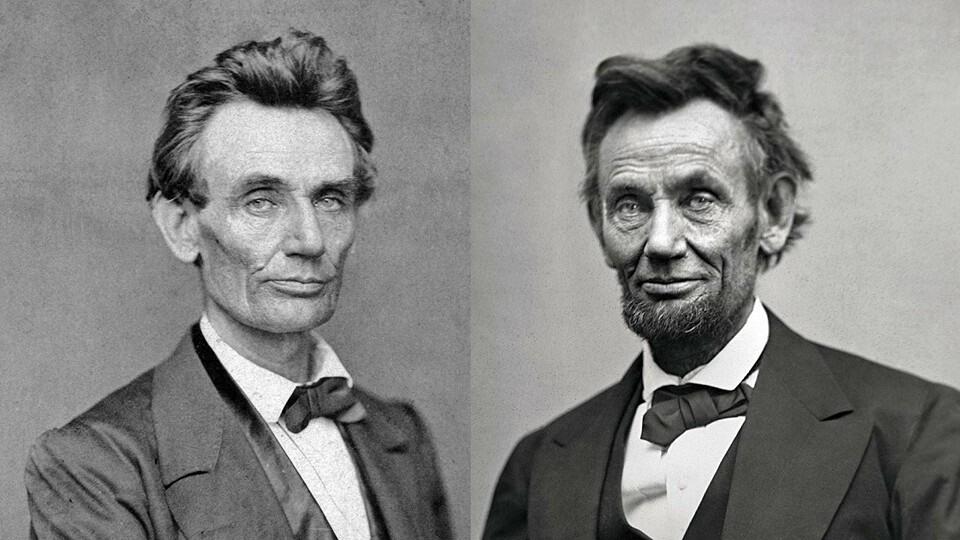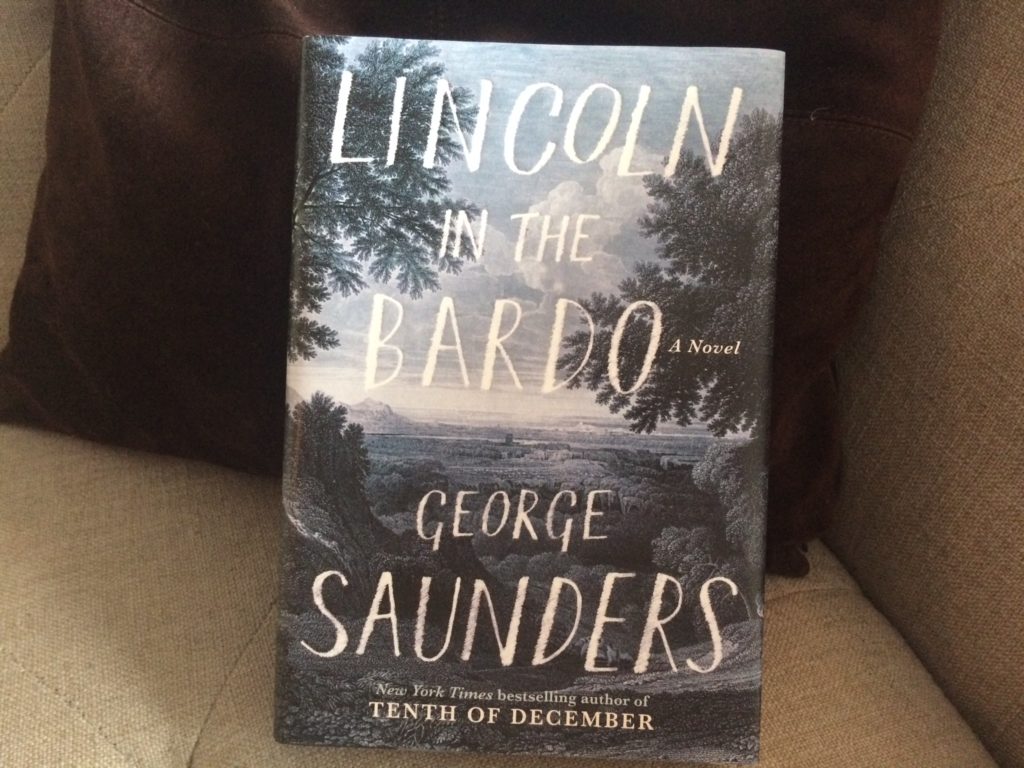Lincoln in the Bardo, the first novel by George Saunders, is one of the best books I’ve ever read.
This is a heartbreaking work of genius – the kind of thing that makes fellow writers swell with envy.
You know that famous photograph of Lincoln before and after the Civil War?
Well, the reason for such frightening contrast will become devastatingly clear after reading Lincoln in the Bardo.
Lincoln in the Bardo Book Review
Lincoln in the Bardo is set in February 1862. The Civil War is almost a year underway. And President Lincoln’s son Willie is dying.
This book is grounded in the historical fact that, when Willie died, Lincoln was so beset with grief that he returned several times to his son’s crypt in order to hold the body.
Saunders takes that historical nugget and manages to expertly weave an entire story around it.
Willie’s soul is in limbo caught between this world and the next, and he is surrounded by fellow spirits that have yet to pass on as they endeavour to struggle over his and their own souls.
Though Lincoln in the Bardo is so unique it defies literary comparison, I feel it best to make an effort to suggest similar titles in order to convey the kind of narrative you should expect:
If you loved Joyce’s Ulysses or Dylan Thomas’ Under Milkwood, you will love this book.
The main thing to note:
The first 50 pages were utterly disorientating yet thrilling at the same time
“What the hell’s going on?”
That was a question I asked myself over and over again until I hit roughly 50 pages in.
Persevere with this book and you will be rewarded. Give it at least 50 pages for it to click in your mind. Then give it another 50 pages to really start experiencing the rewards.
I listened to the wonderful audiobook at the same time and HIGHLY recommend you combine the audio and print version simultaneously. The audiobook is one of the best I’ve ever heard. There are a lot of characters in this book and each one has its own wonderful voice actor that takes the story to the next level.
So the first 50 pages are disorienting…
But why?
I’m sure it’s entirely deliberate as Saunders attempts to convey an otherworldly atmosphere in a compelling and believable way. Saunders’s style of weaving real life excerpts and accounts detailing Lincoln’s life amongst his fictional snapshots only makes the reader’s initial introduction to his world all the more overwhelming.
Saunders crafts a narrative out of seemingly disparate excerpts from a wide array of sources, then he sneaks in his characters as though they are the sources themselves.
Though the soul of Willie Lincoln is undoubtedly a central character, the characters that steal the show are those of Roger Bevins III, the Reverend Everly Thomas, and Hans Vollman, spirits caught between this world and the next.
These characters provide so much joy and laughter as they debate among themselves and recount their previous lives. They exist to alleviate and also increase the amount of pathos in the story of Lincoln’s grief.
One of the many things that stuck out to me was their debate about their own forms and the forms of corpses. They call their dead bodies “sick forms” and coffins “sick boxes”, refusing to believe their true nature and refusing to pass on
Comedy and pathos sit side by side in Lincoln in the Bardo.
You have grotesque comedy (e.g. talking about their swollen members) and more nuanced comedy coming from the spirits opinions, and then you have the pathos of seeing inside the mind Lincoln as grieving father.
We are exposed to a grief that is almost unbearable. We’re pushed to breaking point again and again throughout this novel.
I cried and laughed while reading this book.
Saunders manages to interlace a meditation upon the nature of grief and loss alongside a meditation on the ethics of war, particularly that of civil war.
Some of the most chilling parts of Lincoln in the Bardo come from real life accounts written by those affected by the civil war, accounts that America should heed today as it once again seems on the brink of civil war.
I don’t care about your politics, liberal or republican or anything in between, everyone needs to read this book.
Lincoln in the Bardo is a difficult book and an ambitious book and also an important book.
- Difficult because you must navigate through a lot of inner monologues and different characters.
- Ambitious because of the subject matter and the fact that the form is so peculiar, unique, inspired.
- Important because it forces you, the reader, to meditate on the nature of loss – particularly of those close to you – while also meditating on the nature of war – particularly war between your own brothers and sisters.
It’s difficulties are rewarded a hundredfold.
I didn’t want to finish the book.
I wanted to savour Lincoln in the Bardo forever.
Saunders meets his high ambitions. The book works extraordinarily well.
This is a book I will gift again and again.
This is a book I will reread again and again. It now sits alongside my favourite books of all time, like Heart of Darkness and Man’s Search For Meaning.
There’s rarely if ever such a thing as a perfect book. But to me, Lincoln in the Bardo is a perfect book. A true work of heartbreaking and life-affirming genius.


This book is just astonishingly good. Never before have I read a work three times in a row, I found more tears and laughter each time. Never have I come across a deeper, more heartbreaking depiction of the loss of a child, or a more endearing pair than Vollmann and Bevins. Read the latter’s view of the magic of life, captured in the moment between his suicidal act and death, as he “changes his mind”-you will never see the world in quite the same way.
Completely agree. I actually struggled to breathe while reading certain parts. Saunders is a master writer. Did you listen to the audio version? Highly recommended!